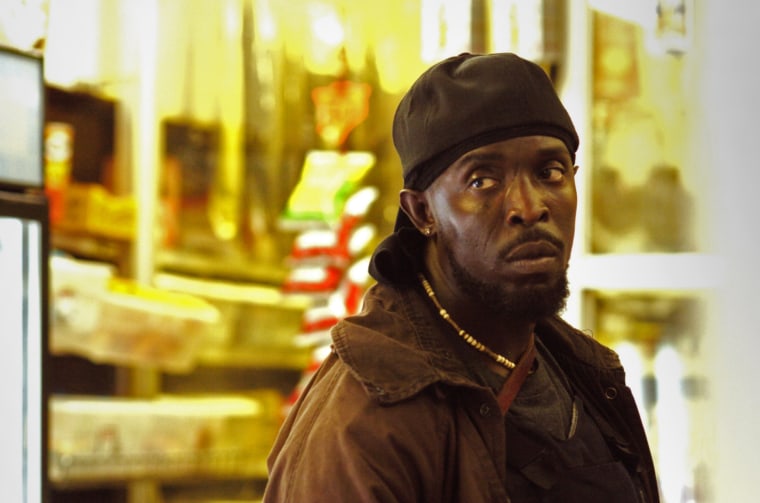As family, friends and fans alike mourn the death of the Emmy-nominated actor Michael K. Williams, many of his queer Black admirers have been reflecting on the importance of his groundbreaking portrayals of gay Black men.
Williams, who was found dead Monday at his home in Brooklyn, New York, at 54, is best known for his role as Omar Little on the award-winning HBO drama series “The Wire,” from 2002 until the show’s end in 2008. Omar was a terrifying stickup man who stalked the streets of Baltimore fearlessly robbing drug dealers while wearing a billowing duster concealing a sawed-off shotgun. But he was also an unashamedly open gay man with a moral “code.”
After “The Wire,” Williams went on to portray other gay characters, such as the Vietnam veteran Leonard Pine in 2016’s “Hap and Leonard'; the HIV-positive activist Ken Jones in “When We Rise” in 2019; and, mostly recently, Montrose Freeman in 2020’s “Lovecraft Country.”
His role as Freeman earned him his fifth Emmy nomination for outstanding supporting actor in a drama series.
“What was really amazing about Michael K. Williams was that he was unafraid of playing Black gay men in Hollywood,” Emil Wilbekin, former editor of Vibe magazine, told NBC News. “That was taboo then and still is today. He was willing to play those roles and push back against heteronormativity in Hollywood.”
Author Robert Jones Jr. paid tribute to Williams, celebrating the actor for being brave enough to take on those roles and for showing same-sex affection on screen.
“Michael K. Williams’s death cuts incredibly deeply because what we witnessed in him was an artist who was getting as close to liberation as we’ve ever seen a Black man get — only to have it snatched away the moment it was within reach,” Jones said in a statement. “Michael was showing us a different way to think, to act, to love, to be. His passing leaves a cavernous hole in the fabric of existence. I hope his example gives us the skills, the tools, the vision to one day repair it.”
On Twitter, the Emmy- and Oscar-winning writer and actor Travon Free called Williams a "genius" and "a truly great dude."
The actor was "a black queer icon who challenged the ideas of black masculinity at a time when it wasn’t easy," Free said, adding: "A huge loss. Somebody tell God, Omar coming.”
Fans also took to social media to reflect on the significance of Williams' characters.
Wilbekin told NBC News that Williams’ passing reminds us of the power of media and the importance of diverse, on-screen representation.
“Williams was a possibility model for so many young, Black gay and queer kids to see themselves on screen played with so much life, love and passion. He made it not stigmatized,” he said. “That’s why we see so many people touched by his death. When someone is a real artist and gives so much to their work, we as fans and as TV lovers, we will miss that.”
